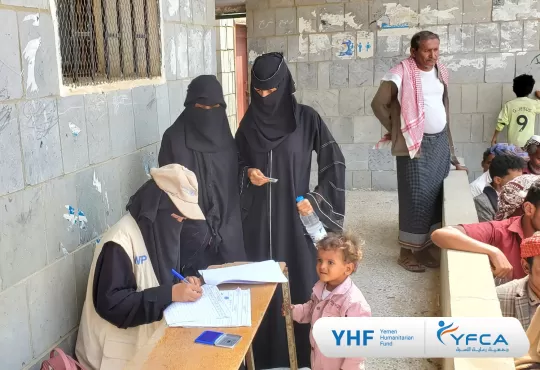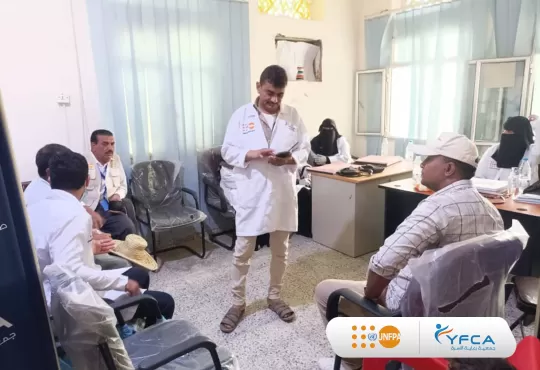Date: April 22, 2025
Location: Al-Bataria sub-district
In a significant step towards improving the living conditions of displaced persons, the YFCA team conducted a field visit on April 22, 2025, to inspect the ongoing construction of transitional shelters (TSKs) in the Al-Bataria sub-district. This initiative aims to provide safe and durable housing for internally displaced persons (IDPs) and underscores the commitment to enhancing their stability and quality of life.
During the visit, the YFCA team welcomed a representative from the donor organization, YHF, who arrived to assess the progress of the TSKs. The project field coordinator guided the donor team through various construction sites, where they observed firsthand the dedication to adhering to established standards.
The TSKs are designed with essential materials to ensure durability and comfort. The construction includes a masonry foundation with a thickness of 40 cm, cement block walls, and a roof made from iron, tarpaulin, and reeds. These components are not only built to withstand environmental challenges but also to provide a secure living environment for the residents.
A noteworthy aspect of this project is the inclusion of displaced persons in the construction process. The YFCA team emphasized the importance of involving IDP workers, allowing them to gain skills and improve their livelihoods. One displaced worker proudly identified himself as a skilled builder, highlighting the personal and professional growth opportunities provided by this initiative.
As part of the visit, the YHF team engaged with residents to gather feedback on the suitability and effectiveness of the shelters. This interaction provided valuable insights into the needs and concerns of the community, ensuring that the shelters not only meet basic requirements but also enhance the overall well-being of the displaced population.

Thursday, 22 May, 2025
In conclusion, the field visit by YFCA and the YHF team marks an important milestone in the ongoing efforts to enhance living conditions for displaced persons. The commitment to constructing durable shelters, involving the community in the process, and actively seeking feedback reflects a holistic approach to addressing the challenges faced by IDPs. Ensuring the success of these initiatives will be crucial in supporting the stability and improved living conditions of those affected by displacement.



